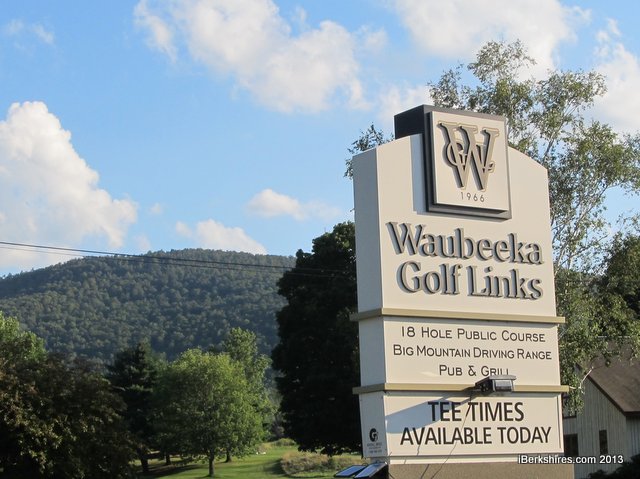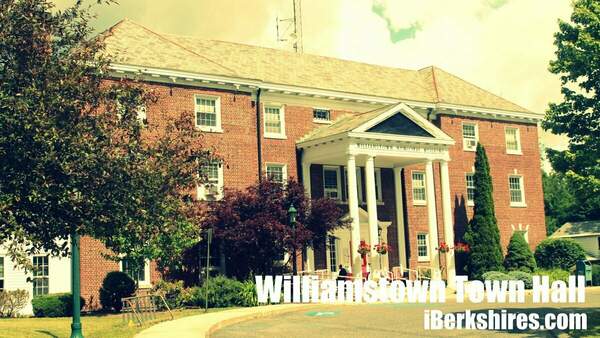Williamstown Planning Board: Keep Working on Waubeeka Zoning Proposal
 The Planning Board evinced support for a proposed inn at Waubeeka but said it would require a town meeting approval to change the zoning. The Planning Board evinced support for a proposed inn at Waubeeka but said it would require a town meeting approval to change the zoning. |
WILLIAMSTOWN, Mass. — The Planning Board continues to encourage the owner of Waubeeka Golf Links to work with town officials on a proposal for a zoning change that would allow an inn at the course.
At its most recent meeting, three members of the five-member board told Michael Deep and his attorney to sit down with Town Planner Andrew Groff and board member Ann McCallum to develop draft proposals for the board to consider at its November meeting.
The board could put a bylaw before May's annual town meeting that would allow the additional use at Deep's property in South Williamstown near the junction of Routes 7 and 43, the Five Corners district.
More than half a dozen residents of South Williamstown attended the board's Oct. 13 meeting, telecast on the town's community access television station, WilliNet.
Deep has said the golf course he bought two years ago is losing money and its business model is not sustainable.
"Last year, I lost a significant amount of money," Deep said. "This year, I didn't lose quite so much.
"I'm very optimistic I can turn it around. I'm going to need help from the entire community. I'm going to need outsiders. It's such a beautiful place. It's a shame if I'm not able to continue."
Most of the attendees expressed support for the course and some said an inn there would be a welcome addition to the town, but several questioned why Deep does not have more details about the design of the inn or the name of the partner he hopes to engage to build and operate it.
Deep's attorney, Stanley Parese, again explained that requiring such details would be putting the cart before the horse. Before Deep can find a partner willing to spend money on market analysis (to determine the viability of an inn) and design work, such a partner would need to know development was allowable under the law.
Even McCallum, toward the end of the discussion, suggested that there was enough support for the concept of a zoning change for Deep to find a partner and do a market analysis.
"The whole point of why they came to the board the last time is it's a waste of time and money from a property owner's point of view if there is no possibility from a zoning standpoint," Planning Board member Chris Winters replied.
Parese indicated that he understood why residents might expect more specficity at this stage of the discussion, but it is not practical.
"One of the things we suffer from in Williamstown ... is that the two major developers of property in town are the college and the Clark [Art Institute]," Parese said. "The college and the Clark have, relative to other businesses, infinite resources for soft costs and an infinite time frame.
"So if you say to the Clark or the college, spend $60 grand on a study and come back in two years after we've though about it, they can do that. The private, for-profit sector doesn't operate that way. It just doesn't."
Planning Board Chairwoman Amy Jeschawitz expressed sympathy for Deep's position.
"Our job is to decide how big the sandbox is," Jeschawitz said. "But you can't expect a business owner to tell you before they even know what they can do what it will look like."
The size and shape of the "sandbox" was a topic of some discussion at the Oct. 13 meeting. Several residents expressed concerns about the unintended consequences of less restrictive zoning throughout the Five Corners area.
The Planning Board has in the past expressed a disinclination to do "spot zoning," and had discussed using Deep's request as an opportunity to address other zoning quirks in the area. But residents speaking from the floor of the Oct. 13 meeting said they were worried about what other businesses might come into a rezoned Five Corners.
McCallum appeared to be persuaded by those arguments.
"We don't like the existence of these grandfathered lots that have problems every time you want to change a use," McCallum said. "It seems messy. "Perhaps this is a chance to clean that up, to legitimize these uses with zoning. But I think our board needs to think now what is the best way to get a hotel on Waubeeka without having negative consequences everywhere else.
"The goal would be to keep it minimal — to do something simple and small to allow the hotel. That's what I'm hearing."
The Planning Board members assured the meeting's audience that there would plenty of opportunity to weigh in on any potential zoning change before the question goes to town meeting, where it would require a two-thirds "super majority" for passage.
"There's lots of opportunity for public input between now and any shovels getting put in the ground," Winters said. "There's the initial meeting to discuss the draft bylaw. There's the public hearing before we vote on the bylaw. There's town meeting. Then let's say [the bylaw] gets accepted, and it's probably a special permit, there's a special permit hearing [before the Zoning Board of Appeals] to grant the special permit."
The next Planning Board meeting is scheduled for Nov. 10.
Tags: golf course, motels, hotels, Planning Board, South Williamstown, waubeeka,
 The Planning Board evinced support for a proposed inn at Waubeeka but said it would require a town meeting approval to change the zoning.
The Planning Board evinced support for a proposed inn at Waubeeka but said it would require a town meeting approval to change the zoning.














